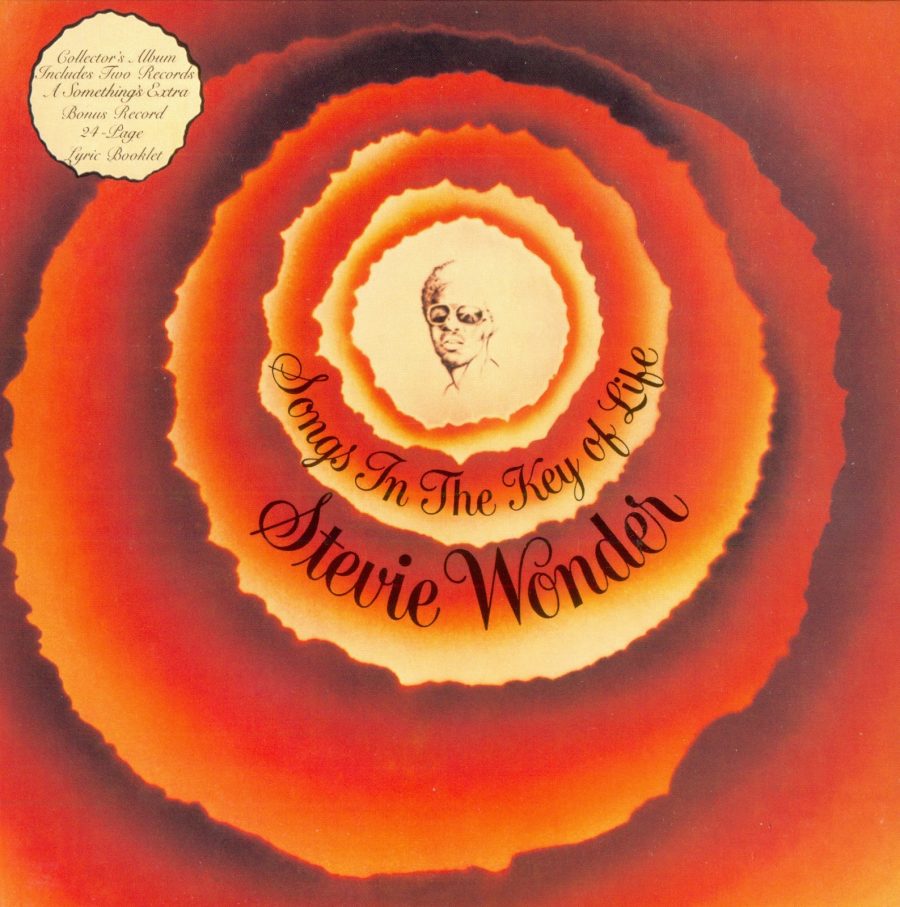

At least two more rhyming nouns could have fit in his lists of contemporary issues: mass migration and deindustrialization.
Stevie wonder songs in the key of life album torrent series#
In addition, on “Pastime Paradise” from Songs in the Key of Life, Wonder lists a series of words and phrases that highlight persistent problems of the 1970s and beyond: “Dissipation, race relations, consolation, segregation,” and so on. As scholar Craig Werner writes in Higher Ground: Stevie Wonder, Aretha Franklin, Curtis Mayfield, and the Rise and Fall of American Soul (Crown, New York, 2004), calling it Wonder’s greatest album, “ontext can’t be ignored.” The disillusionment in US society with the Watergate scandal, President Richard Nixon’s subsequent resignation, and the loss of the Vietnam War increased deep divisions in the US. That said, the album should not only be considered a general masterpiece its specific contexts, including in black American and international traditions, strengthen the album. And Wonder, whom Sinéad O’Connor called “a singer’s singer” on VH1’s 100 Greatest Albums of Rock & Roll special in 2001, exhibits a depth of feeling and a pure tone quality (timbre) in his vocals that help the album stand out in music history. Whether or not one loves the album’s lyrics, the music, especially the instrumental and vocal arrangements, is dazzling. But that doesn’t mean that Songs in the Key of Life is flawed. And to be fair, the conciseness of his preceding albums had given way to a sense that Wonder could do whatever he wanted. Indeed, for some, the album is a bloated, self-indulgent, hokey album that shows all that talk of Wonder being a genius going to his head. Critics like Rolling Stone’s Vince Aletti and the Village Voice’s Robert Christgau, who called it a “flawed” masterpiece, highlighted the album’s convoluted lyrics. One of the most commercially significant albums of the 1970s in terms of chart success and now considered one of the most influential and important albums of the decade, Songs in the Key of Life was initially praised far less than albums like Innervisions (1973) and Talking Book (1972) had been. Nonetheless, the album’s acclaim in musical and scholarly circles contrasts with Songs in the Key of Life‘s initial critical reception. Mark Anthony Neal highlights Wonder’s work of the period, including Songs, aside that of jazz and spoken word artist Gil Scott-Heron as “authentic black voices in an age of deterioration” in Neal’s book, What the Music Said: Black Popular Music and Black Public Culture (Routledge, New York, 1999). Of course, Songs in the Key of Life is acclaimed by scholars of race and music as more of an exception to the era when Wonder recorded and released it. Maultsby, 2nd edition, Routledge, New York, 2015), historian George Lipsitz instead emphasizes the underappreciated music of 1970s soul in his 2007 book, Footsteps in the Dark: The Hidden Histories of Popular Music (University of Minnesota Press, Minneapolis), contrasting it with the more esteemed music of the 1960s.

Maultsby highlights “the decline of the soul era” with disco in her chapter on soul in African American Music: An Introduction (edited by Mellonee V. Similarly, while ethnomusicologist Portia K. Lordi, whose book, The Meaning of Soul: Black Music and Resilience Since the 1960s (Duke University Press, Durham, 2020), argues that there are patriarchal elements to George’s critique, as the supposed dilution of different black American traditions happened at a time when women and queer people were more prominent in black American music. Today, the supposed inferiority of this era’s music is being contested by scholars like Emily J. However, especially in Songs’ era, the album’s commercial and critical status occupied an unusual space in the years between the height of soul and the ascent of disco and urban contemporary markets that critic Nelson George famously called “the death of rhythm & blues” in his 1988 book of that title (Pantheon, New York, 1988). Many have called the album a towering masterpiece in the histories of soul music, popular music, American music, and Black music worldwide. Forty-five years after its release, Stevie Wonder‘s Songs in the Key of Life is one of the most beloved albums ever made.


 0 kommentar(er)
0 kommentar(er)
